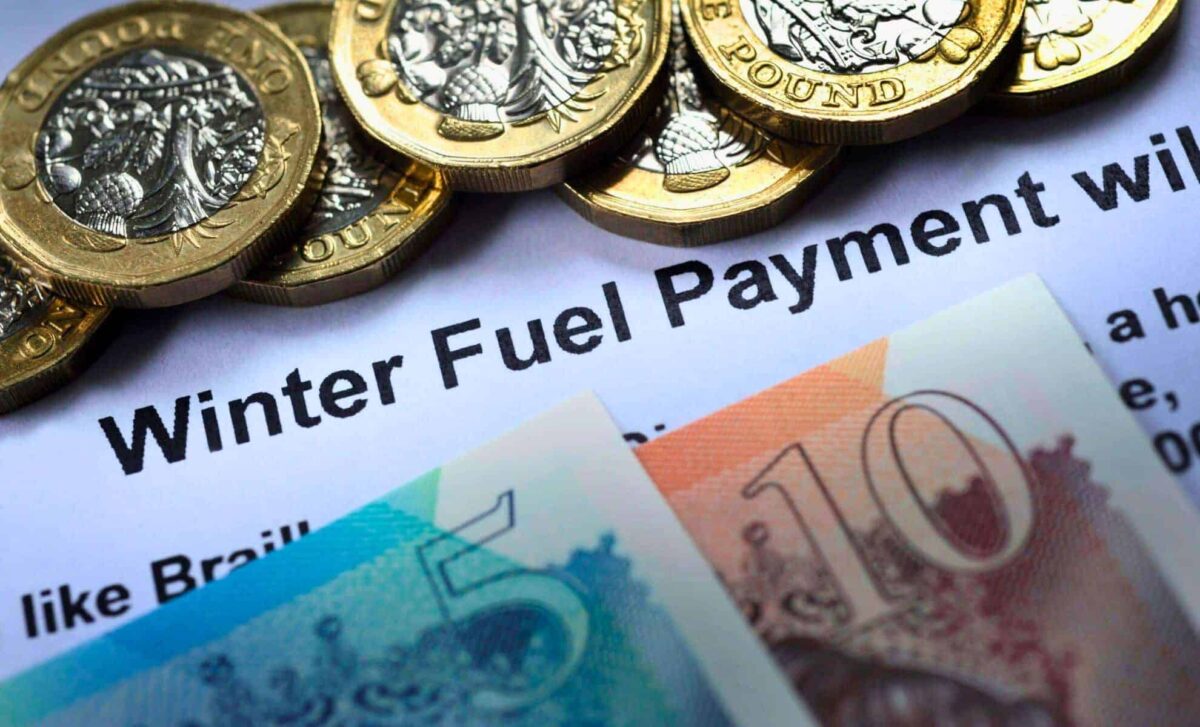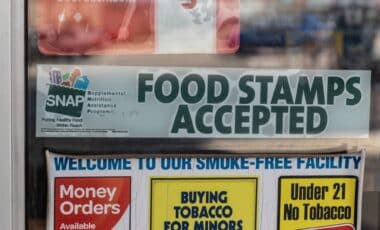The Department for Work and Pensions (DWP) has addressed growing public concern following a petition that garnered over 100,000 signatures, calling for the reinstatement of £300 Winter Fuel Payments for all pensioners. This petition arose from increasing anxiety over the financial pressures facing many elderly individuals, especially during the colder months when heating costs soar. In its response, the government made it clear that it has no intention of reinstating universal payments for all pensioners. Instead, the focus is shifting to means-testing the Winter Fuel Payment to better target those in greatest need. The DWP emphasized that it will prioritize increasing the take-up of Pension Credit, which can provide additional support to pensioners with the lowest incomes.
The DWP’s Official Response
In response to calls for reinstating universal Winter Fuel Payments, the Department for Work and Pensions (DWP) has firmly reiterated its position. The Government has no plans to reverse the means testing of the Winter Fuel Payment but is instead focusing efforts on increasing Pension Credit take-up. The DWP emphasized that this shift aims to ensure that all eligible pensioners continue to receive the necessary support.
“The Government has no plans to reverse the means testing of the Winter Fuel Payment but is focusing on increasing Pension Credit take-up to ensure all eligible pensioners continue to receive support. Given the substantial fiscal pressures this year and next, the Government has had to make difficult decisions to bring the public finances under control. This includes the decision to means-test the Winter Fuel Payment, so it is better targeted to low-income pensioners who need it.”
The Government’s stance reflects the ongoing fiscal pressures the UK faces, including rising costs in healthcare, energy, and public services. The DWP’s explanation underscores that while these decisions are challenging, they are made with the goal of balancing the country’s finances while ensuring that the most vulnerable, especially pensioners, continue to receive vital financial assistance. The focus on means-testing is seen as a way to direct resources more effectively, targeting those who need the support the most.
Focus on Pension Credit: A Safety Net for Low-Income Pensioners
The DWP’s strategy revolves around maximizing the take-up of Pension Credit, a benefit designed specifically for pensioners on the lowest incomes. The government views this as a safety net that ensures older citizens have access to a basic standard of living while also opening the door to other essential support services. According to the DWP:
“To ensure Winter Fuel Payments are received by those on the lowest incomes, the Government is determined to do everything it can to maximise take-up of Pension Credit which provides a safety net for pensioners on the lowest incomes and opens the door to other benefits including the Winter Fuel Payment.”
By focusing on increasing Pension Credit applications, the government aims to streamline its approach to supporting pensioners. Those who qualify for Pension Credit are not only entitled to financial assistance but also access a range of other benefits such as help with housing costs, energy bills, and, for those over 75, a free TV license. In addition, Pension Credit recipients automatically become eligible for the Winter Fuel Payment, which can help ease the burden of rising heating costs during the winter months.
Direct Outreach to Pensioners
To ensure that pensioners are fully aware of their eligibility for these programs, the DWP has engaged in extensive outreach efforts. Recently, the department wrote to around 12 million pensioners to inform them of changes to the Winter Fuel Payment eligibility criteria and to encourage them to check if they may qualify for Pension Credit. These communications not only provide detailed information about how to apply for Pension Credit but also urge pensioners to assess whether they are receiving all the benefits they are entitled to.
Additionally, the government has directly contacted 120,000 pensioners who are receiving Housing Benefit but have not yet claimed Pension Credit. In these cases, the DWP has invited pensioners to apply for Pension Credit ahead of the December 21st deadline. This is important because the rules around Pension Credit backdating allow pensioners to potentially qualify for the Winter Fuel Payment for the current year, provided they apply in time.
Financial Support for Eligible Pensioners
For those who qualify for Pension Credit, the benefits extend well beyond just the Winter Fuel Payment. The DWP notes that:
“Not only will those who are eligible retain Winter Fuel Payment entitlement, they will receive an additional £3,900 a year on average through their new Pension Credit award, which provides a passport to other help such as assistance with housing costs, energy bills and a free TV licence for those over 75.”
This substantial increase in financial support provides much-needed relief for pensioners struggling with the high costs of living. The average additional £3,900 per year can make a significant difference in the financial stability of elderly individuals, helping them cover essential expenses like rent, utility bills, and food. Furthermore, the provision of a free TV license for those over 75 and the other support services offered by the government help improve the quality of life for many older citizens.
The Government’s Commitment to Pensions and Healthcare
In addition to the changes to Winter Fuel Payments and Pension Credit, the government has also reaffirmed its commitment to pensioners in the form of pension increases. The Chancellor’s recent Autumn Budget confirmed the government’s commitment to the Triple Lock, ensuring that pensioners’ incomes will rise in line with inflation, earnings, or by 2.5%—whichever is highest. This increase, which is set to take effect in April 2025, will see over 12 million pensioners receive a 4.1% increase in their basic State Pension and new State Pension. The increase is expected to be worth up to £470 annually for pensioners, with the new State Pension set to rise by around £1,900 over the course of the current parliament.
“The Chancellor’s Autumn Budget confirmed the Government’s commitment to the Triple Lock. Subject to Parliamentary approval, over 12 million pensioners will see their basic or new State Pension increase by 4.1% from 7 April 2025, worth up to £470 a year. Over the course of this parliament, the full yearly rate of the new State Pension is forecast to increase by around £1,900 whilst the full yearly amount of the basic State Pension is forecast to increase by around £1,500.”
The DWP also highlighted that the difficult decisions made in relation to Winter Fuel Payments have enabled the government to allocate additional funding to other critical public services. Specifically, the government has made significant investments in the NHS, which benefits everyone, including pensioners who rely heavily on healthcare services. Eligible pensioners will continue to benefit from free eye tests, NHS prescriptions, and bus passes, all of which play a crucial role in improving the quality of life for older individuals.
The Bigger Picture: Managing Fiscal Pressures for the Long-Term
While the decision to target Winter Fuel Payments may seem controversial, the government argues that it is necessary for ensuring the long-term sustainability of public finances. The DWP pointed out that:
“The difficult decisions we have made, such as targeting the Winter Fuel Payment, mean the Government is able to provide additional investment in the NHS, which benefits everyone including all pensioners who rely on these services. Eligible pensioners will also continue to benefit from free eye tests, NHS prescriptions and bus passes.”
This statement underscores the broader fiscal strategy of balancing immediate support for the most vulnerable with the need to make long-term investments in vital services such as healthcare, which are crucial to the well-being of pensioners.










How can I get pension credits if the limits are set low
Pensioner on pension credits still can’t afford a car to stay mobile So why can pension credit be eligible for motorbility payments
Now retired – I am now reduced to using a 1KW fan heater in one room as I fall outside the pension credit claim figures. Due to high increase in energy costs the government payment really made a difference. I can get by but worry for others. Voted Labour all my life but have to express disappointment regarding the Winter fuel situation
If you are on the new full pension you are over the £218 cap by £3
How can pensioners be struggling on pension credit when they get exactly the same amount as state pensioners when there money is made up with pension credit yet we are not classed as struggling but get the same amount how does that work then and you get everything free on pension credit yet pay for everything on state pension not right at all
We pensioners will never forget this unnecessary action, it’s us the pensioners who gave you your tomorrow and our today will be dedicated to punish the Labour Party for our suffering.
The recipients of the basic state pension are not receiving benefits. It is time the government examined the arrangements made when working people were obliged to pay towards their future pensions which were included with their national health charges and taken off their wages at source. Surely it is illegal to rate them as a benefit as workers were told it is a right. Labour goverments were always there for working people and supported through the unions again by workers subscriptions to unions. BY Whom and when did this change?
When were the workers consulted and how can it be legal to describe the basic state pension as a benefit
I applied for pension credits and was declined for being a few pennies over the Government obviously thing l am rich,its disgusting that the Government is treating me and other in the like me in this way,pensioners don’t matter.
I wish the government and media would stop going on about claiming pension credit..I can’t because I’m £3 over the threshold…it’s disgusting..I’ll be lovely and warm on £3 a week won’t I…
At least if this uncaring government had given pensioners 12 months warning what it was going to do so they could have saved to wards the winter fuel bill’s. It’s a total disgrace what they have done especially with the winter we are getting. But unlike this government Fair Warning from me and thousands of other pensioners we won’t forget . We won’t be voting for Labour in the next election when ever that is.
How am I supposed to get pension credit if you it is set too low and means I am not eligible for it and can’t get winter fuel payment.
Mr starmer keeps saying pensions will b better of with triple lock when .y rent went up my council tax went
Work all your life pay all your taxes to pay benefits to a great many who think they are too good to work but take all the benefits.Benefits should be for people who are blind,deaf disabled in a wheelchair not for those who don’t want to work and who con the system.Oh but labour will support these benefit cheats in every way.They have the brass neck to say they are for the working class,no they are for the benefit scammers.Like a lot of people I at 66 have worked all my life and am £3 over so can’t claim for pension credit.Also had to continue working as did not get my pension at 60 having paid my NI for more than 35 years.The government needs people who live in the real world and need to stop their inflated salaries and expenses.As for Keir and his wife and Rachel and whoever else getting inflated clothes allowances it is absolutely disgusting.
I get the state pension and I do get some housing benefit so why are the government saying if you get housing benefit
Then I can apply for pension credit it also states that they have been in touch with pensioners on housing benefit but they haven’t contacted me
How can people who have lived in America for 40 years,then come back here and get pension credit?
Cannot get winter fuel allowance but all the illegal immigrates will be warm and fed this winter without paying anything into. The country which was paid by me for 50 years discussed
I worked all my working life in the NHS as a nurse, paid my taxes, never made a claim from anywhere. Now I am penalized for working and have a work pension, I am still paying tax and will till the day I die with the way the government look at tax.
I know people ( whole families from generation to generation, who have never worked, claimed every benefit there is ( some also illegally working), they can go away in holidays abroad, have every up to date household appliances in a council house that is paid for them, every repair paid for them.
I am also a WASPI and through this I have had to take the equity from my home to help me through the 6years as I had to take early retirement due to ill health that is still on going 7years later. This means I no longer own my house, which I did and have to pay for any repairs or adaptations for my health myself. I cannot afford to have my heating on and was relying on winter fuel to get me through, the cold affects my body and I’m am sure I will be worse by the time winter is over
It doesn’t pay to work !!!
It does not pay you to work! If you get a small private pension( I get £200 a month and have to pay £40 tax) it takes you over pension credit so you get none of the “freebies” those on pension credit get( worth £3,900 a year) This is not fair! MP’s can claim expenses for heating their homes when they get paid enough to foot the bill themselves. And they have the audacity to take the winter fuel allowance from pensioners.They get all the freebies, clothes, spectacles etc. I despair, I thought the Labour government was for the workers, how wrong I was!
I receive £1.50 too much per week to qualify for Pension Credit which now means that I am now receiving £3900 a year LESS than pensioners worse off than me. Doesn’t make sense to me
Told no then yes got it for 3 months then stopped ,now taking it back out of my pension until 2027 ,I have no savings and on pension and pip day I get paid ,pay my bills then nothing left for anything ,scared as don’t know how I will pay my utility bills
What about those pensioners that don’t qualify for pension credit because there £1.50 to £2.00 over the qualifying rate